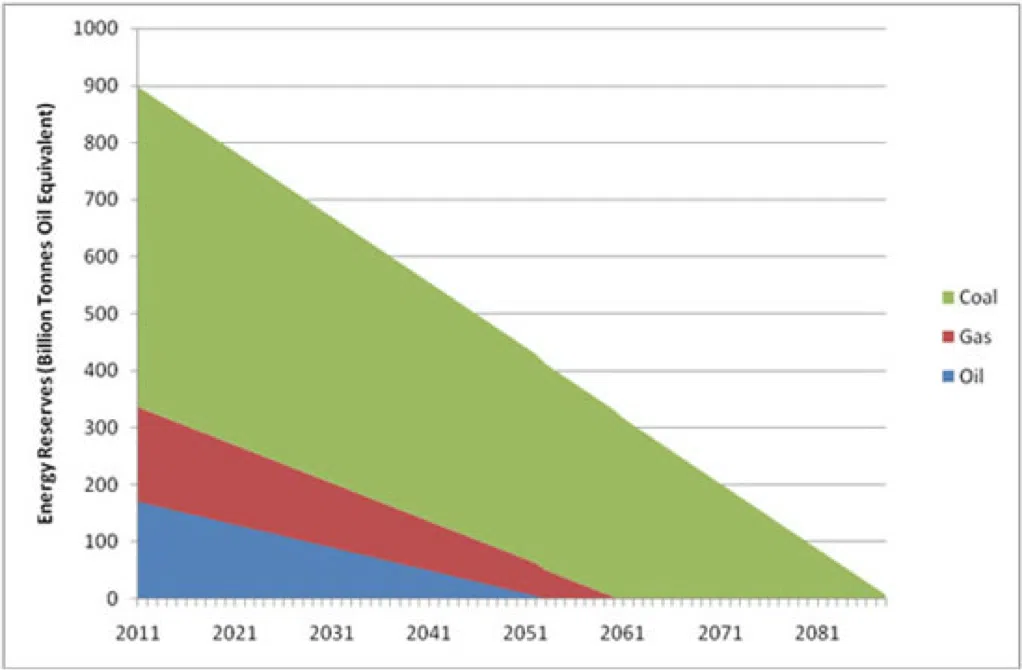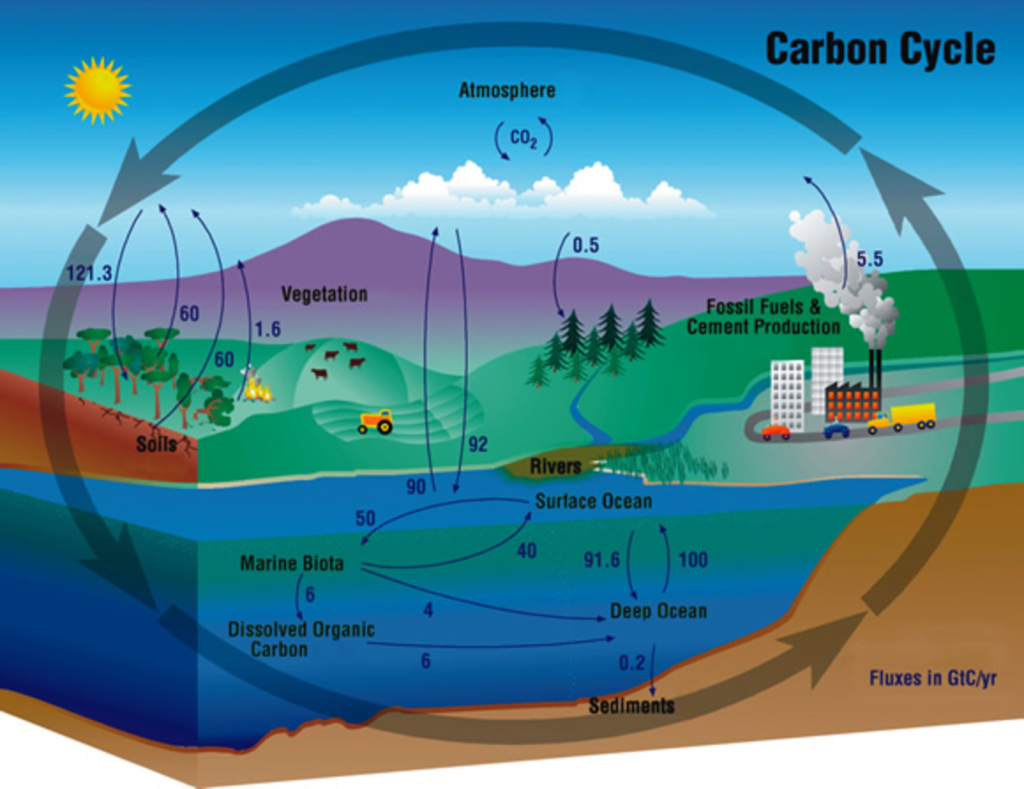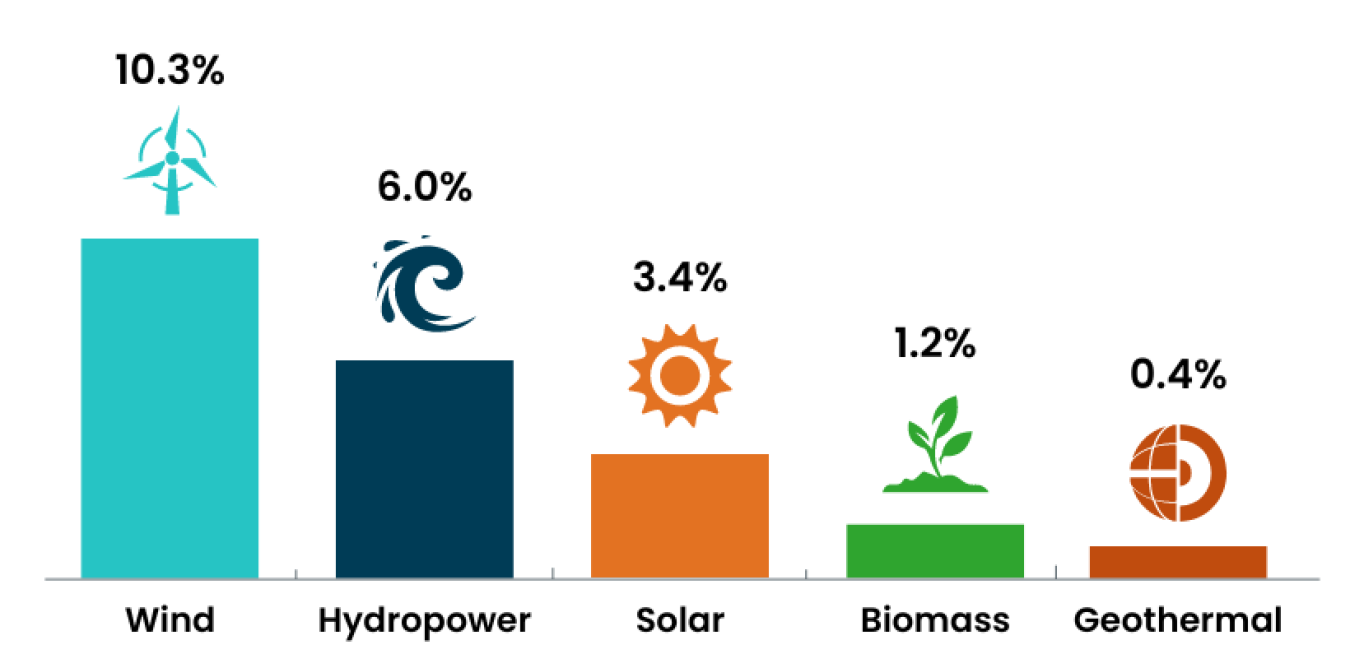When Are We Going to Run Out of Fossil Fuels?
When are we going to run out of fossil fuels? Or is the idea of running out just a myth?

When are we going to run out of fossil fuels? Or is the idea of running out just a myth?
When are we going to run out of fossil fuels? Or is the idea of running out just a myth?
Every day, maybe without even realizing it, our lives are powered by products derived from fossil fuels.
Whether it’s the electricity that lights up our homes, the heat that warms them, or the gas and diesel fuel that powers our vehicles.
Fossil fuels are a big part of pretty much everything we do today.
Most of us are familiar with the environmental reasons for reducing our dependence on fossil fuels, from combating climate change to reducing air pollution.
But there’s another angle to this story that’s equally fascinating and urgent: The sheer availability of these resources.
How long can we tap into these ancient reserves before they leave? Are we actually in danger of running out of fossil fuels, and if so, when will we run out? Or is there enough fossil fuel supply on Earth to keep us going for a long time?
In this article, I want to discuss this intriguing dilemma and uncover some truths about our planet’s most controversial energy sources.
But first, let’s start at the basics.
Before answering the question, “When are we going to run out of fossil fuels?” let’s take a minute to discuss the three most common fossil fuels, how we extract them, and how we use them in everyday life.
Fossil fuels are natural resources that have formed deep beneath the Earth’s surface over millions of years from the remains of dead plants and animals.
The extraction of fossil fuels dates back centuries, with coal mining becoming prominent during the Industrial Revolution for powering steam engines and heating.
The modern oil industry began in 1859 with Edwin Drake’s successful drilling in Pennsylvania, initially propelling oil into the spotlight as a lighting source before its broader use in transportation and industry.
Natural gas saw similar historical uses but became widespread with 20th-century pipeline technology, enhancing its utility for heating, electricity generation, and industrial applications.
Coal
Coal is often used to generate electricity in power plants, and it’s known for its abundance and affordability. However, it’s also the dirtiest fossil fuel, emitting the highest carbon dioxide levels when burned.
Coal is mined from the earth, dug out from large open pits, or extracted from deep underground mines.
Oil
Oil is the go-to resource for transportation. It powers our cars, planes, and ships and is also a key ingredient in making plastics and other synthetic materials. When you fill up your car’s gas tank, you’re using refined oil, gasoline, or petrol.
Oil is drilled from the ground, found in liquid form in underground reservoirs, and extracted through wells.
Natural Gas
Natural Gas is the cleaner cousin of coal and oil. It’s primarily used to heat our homes, cook our food, and generate electricity. It burns cleaner than coal, producing less carbon dioxide and other pollutants.
Natural gas is also extracted from deep beneath the earth’s surface, typically found in rock formations or associated with other fossil fuels like oil.
While pinpointing an exact date is tricky, the question of when we will run out of fossil fuels is filled with scientific predictions and economic assumptions.
According to recent studies, if we continue to consume fossil fuels at our current rates, the potential of running out becomes a real concern because we are using these resources far faster than the Earth can naturally replenish them.
This underscores the importance of finding more efficient ways to use these fuels or increasing our reliance on renewable energy sources.
A recent Stanford University study predicts that if we continue consuming fossil fuels at today’s rate, global reserves will be depleted by 2081.
This projection considers current energy consumption patterns and the finite nature of fossil fuel reserves, emphasizing the urgent need for sustainable alternatives.
 Source: https://mahb.stanford.edu/library-item/fossil-fuels-run/
Source: https://mahb.stanford.edu/library-item/fossil-fuels-run/
Oil: Known reserves are estimated to last until 2052, meaning we have about 30 years left at current consumption rates. This timeline reflects our current extraction rates and known reserves but doesn’t account for potential discoveries or advancements in extraction technology.
Natural Gas: The estimated timeline for natural gas suggests it will run out by 2060, giving us approximately 40 years. This estimate depends on market demand, technological innovations in gas extraction, and shifts in energy policy.
Coal: Coal reserves remain the most abundant fossil fuel, with an expected lifespan until 2090, roughly 70 years from now, based on current consumption patterns.
It’s important to note that these figures represent a snapshot based on today’s technology and market dynamics.
They could change with new discoveries, shifts in energy policy, or advancements in renewable energy technologies, which could either extend the use of fossil fuels or decrease their relevance.
I recommend checking out resources like the U.S. Energy Information Administration (EIA) and the International Energy Agency (IEA) for further detailed reading and to explore the data and methodologies behind these estimates.
These agencies provide comprehensive analyses and reports on energy resources, including detailed projections and assessments of global fossil fuel reserves.
 Source: https://www.researchgate.net/figure/Major-carbon-pools-and-fluxes-of-the-global-carbon-balance-Food-and-Agriculture_fig1_294860579
Source: https://www.researchgate.net/figure/Major-carbon-pools-and-fluxes-of-the-global-carbon-balance-Food-and-Agriculture_fig1_294860579
Fossil fuels, including coal, petroleum, natural gas, and oil shales, are formed through thousands of years-long geological processes.
Research indicates that we consume these fossil fuel reserves much faster than they are replenished by the Earth’s natural carbon cycle.
Extracted from deep within the Earth’s layers, fossil fuels are either burned directly to produce heat or transformed into steam to drive electricity generators.
About 30% of the U.S.’s electricity is derived from coal alone.
Given their finite nature, there’s a widespread concern that we may eventually deplete our fossil fuel resources.
This concern stems from the carbon cycle, the natural process by which the Earth and its atmosphere recycle carbon atoms.
The rate at which we extract and combust fossil fuels significantly outpaces the speed of this natural cycle, leading to an excess of carbon dioxide in the atmosphere and, consequently, accelerated climate change.
The depletion of these resources underscores the urgency of exploring alternative energy sources that do not rely on finite geological reserves.
As we rely heavily on fossil fuels, their limited availability highlights the need for sustainable management and potential alternatives to ensure future energy security.
Switching to renewable energy offers an environmentally friendly way to reduce energy costs and find lower energy rates.
Let’s take a brief look at the role that renewable energy plays in ensuring homes and businesses continue to have electricity, that the cost of transportation for cars and other transit options remains affordable, and that heating and cooling remain available for all.
Renewable energy’s expanding role in the global power mix is crucial as it helps reduce greenhouse gas emissions and sustain the energy supply needed for everyday life.
According to a recent report from energy.gov, as of 2022, renewable energy generates over 20% of all U.S. electricity, and that percentage continues to grow.
The following graphic breaks down the shares of total electricity production in 2022 among the types of renewable power:
 Source: https://www.energy.gov/eere/renewable-energy-pillar
Source: https://www.energy.gov/eere/renewable-energy-pillar
As we witness a significant shift towards renewables, global electricity generation from renewable sources is estimated to exceed 42% by 2028, with solar PV and wind energy leading the charge.
This growth is supported by their increasingly competitive costs compared to fossil fuels. In. many cases, new solar power and onshore wind installations are cheaper than new coal and natural gas plants and less expensive than running existing fossil fuel plants.
Despite these advantages, transitioning to renewable energy comes with its own set of challenges. Key issues include policy uncertainties, insufficient grid infrastructure, financial constraints in developing economies, and technological barriers in energy storage and intermittency management.
Addressing these challenges is vital for a smooth transition to renewable energy systems reliably supporting electric power needs, transportation, and heating and cooling services worldwide.
Global efforts to enhance renewable energy capacity are evident, as are ambitious targets set by international bodies and individual countries.
This substantial increase in renewable energy use is a step towards environmental sustainability and crucial to maintaining energy affordability and accessibility.
While there are hurdles to overcome, the ongoing advancements and international commitments paint a hopeful picture of a future where renewable energy sources predominantly power our homes, vehicles, and industries.
Energy Professionals is committed to finding its customers the best possible rates on electricity and natural gas. Tell us your location and service type and our energy manager will connect you to the most competitive offers.
Switching to an alternate supplier is easy. There is no chance of service disruption, and you'll continue with your current utility for energy delivery and emergency service. Take a few minutes to discover your best offers, and enjoy the benefits of retail energy in your home or business.
1. Energy Type
2. Service Type
3. Zip Code